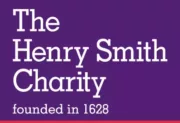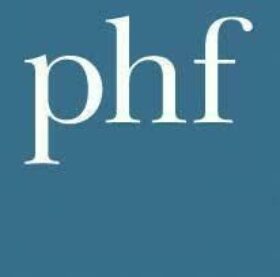Henry Smith Charity - Strengthening Communities
Background
The Henry Smith Charity is one of the largest independent grant making trusts in the UK, distributing more than £30 million each year. Following a review of their grant making, the Henry Smith Charity launched a new strategy for the Main Grants Programme, dividing it into two categories: Improving Lives and Strengthening Communities.
The Charity's three main priorities are as follows:
- Increasing resilience
Empowering people, encouraging integration and personal independence, helping people to recover and move on. - Creating opportunities and life chances
Raising aspiration – equipping people with new skills, unlocking and enabling potential, and providing the means to improve life circumstances. - Empowering communities
Strengthening and connecting communities and making people feel valued, providing opportunities for social connections and relationships, encouraging participation and inclusion.
Objectives of Fund
The Henry Smith Charity's Strengthening Communities programme is part of the Charity's Main Grants programme. The fund focuses on funding small charitable organisations working at grassroots level, to ensure that funding reaches the most disadvantaged areas of the UK, targeting places that are economically marginalised and affected by poverty.
Value Notes
Grants of between £20,000 and £70,000 per year for up to three years are available (most grants are for three years).
The charity does not fund more than 50% of the projected running costs of an organisation in any individual year, except for the smallest organisations requesting their first paid staff member.
Applications for continuation funding will be considered.
Who Can Apply
Charities and not-for-profit organisations including community interest companies (CICs) can apply. They must be physically based and working within the 10% most deprived areas of England and Scotland, and within or immediately next to an area within the 15% most deprived areas of Northern Ireland and Wales on the Government Indices of Multiple Deprivation.
Groups that are not registered charities must have a constitution to demonstrate a charitable purpose.
Community interest companies can apply but must provide details of how their constitution prevents funds being removed from the organisation (asset lock).
The funder supports established organisations delivering services directly to beneficiaries, and it is looking for services which can demonstrate a track record of success and evidence the effectiveness of the work.
To be eligible, applicants must:
- Have an income of between £20,000 and £500,000.
- Be at least 18 months old and have published annual accounts.
- Have a track record.
In addition, applicants must be:
- Delivering holistic support - taking a positive approach to the whole person, addressing multiple issues, with those who are in some way excluded or vulnerable.
- Providing direct service delivery - engaging directly with people to help them to build their capabilities and tackle the root causes of problems.
- Community led - have a clear understanding of the needs of their community and are working with the community to address them.
- Open and accessible - committed to equal opportunities and removing barriers to marginalised groups.
- Clear and consistent about what they aim to achieve as demonstrated through their actions and practice.
- Responsive to need and well placed to deliver.
- Well placed to deliver services and aware of what is going on around them.
- Person centred - the interests of the individual are at the heart of what the organisation does. People are meaningfully involved in developing solutions to the issues they face.
- Using resources well - high-quality, well run organisations that have the skills and capabilities to make proper and effective use of their resources.
Location
United Kingdom
Restrictions
Funding is not available for organisations that have:
- Reserves (net current assets plus investments) covering more than 12 months' expenditure.
- An annual income below £20,000 and above £500,000.
- Applied unsuccessfully within the previous 12 months.
- Another application under consideration in any other Henry Smith grant programme.
- An another application under consideration for any other Henry Smith grant programme.
- Have no up-to-date safeguarding policy.
- Are operating from multiple locations across different communities eg across a city, region or nationally.
- Have an active grant under the Improving Lives, Strengthening Communities or Christian Projects grant programmes (unless the organisation is in the last six months of its current grant and wishes to apply for continuation funding).
Funding will not support:
- Proposals for loans or social finance.
- Proposals that are only for the benefit of one individual.
- Work that is not legally charitable.
- Work that has already taken place.
- Start-up costs, pilot projects or organisations that do not yet have a track record of service delivery or a year of annual accounts.
- Research, scholarships or student fees.
- Local authorities or work usually considered a statutory responsibility.
- Schools, colleges, totoring services or universities, except for special schools exclusively for pupils with disabilities or special educational needs.
- Organisations that do not provide direct services to clients (such as umbrella, second tier or grant-making organisations).
- Work that benefits people outside the UK.
- Uniformed groups.
- Work that specifically targets current or ex-service men and women.
- Professional associations.
- Services that actively seek to proselytise or promote any religion.
- One-off holidays, overseas travel or events (such as festivals, conferences, exhibitions and community events).
- Projects only providing pre-school services, out of school hours play activities or holiday schemes.
- Healthcare which has a clinical basis including medical care and research, physical therapy, hospices or other palliative care services or specialist equipment.
- Heritage or environmental conservation projects.
- Campaigning, lobbying, or general awareness raising work.
- Work that provides legal advice specifically to support court action.
Eligible Expenditure
Work must align with one or more of the following aims:
- People from across the community are able to participate in activities that improve connectedness, opportunities and wellbeing.
- People who are excluded, vulnerable or facing other forms of hardship have access to community-based services that support positive, lasting change.
- A stronger, active and more engaged community.
The funder is looking for the following characteristics in all applications:
- Delivering holistic support - taking a positive approach to the whole person, addressing multiple issues, with those who are in some way excluded or vulnerable.
- Providing direct service delivery - engaging directly with people to help them to build their capabilities and tackle the root causes of problems.
- Community led - the best solutions to social problems are rooted in their community. Organisations should have a clear understanding of the needs of their community and be working with the community to address them.
- Openness and accessibility - organisations that are committed to equal opportunities and removing barriers to marginalised groups.
Grants are to fund general running costs and could be used for rent, overheads, salaries, increasing existing service provision, project costs and improving sustainability and can include small capital items needed to support the work.
How To Apply
Applications can be submitted at any time. There are no deadlines and applications are assessed when they are received.
There is a two-stage application process. An online stage-one application form is available to complete via the Henry Smith Charity website. This first stage can take up to eight weeks and applicants will then be contacted to inform them if they are successful and will be put through to the second stage.







